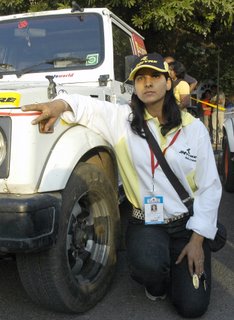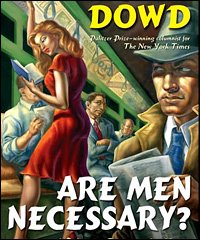 More and more Internet users in India are turning to e-commerce websites for shopping purposes.
More and more Internet users in India are turning to e-commerce websites for shopping purposes.More and more Internet users in India are turning to e-commerce websites for shopping purposes, with the numbers increasing during the festive season.
If you thought that half the fun during festive season lies in the shopping trips that you undertake, then, you are in a minority. Internet users are opting to shop from the comfort of their home, avoiding the rush in markets.
According to a survey by the Internet and Mobile Association of India, increasing numbers are now turning to e-commerce sites for shopping purposes.
While 55 per cent of users purchased online, 45 per cent indulge in "online window shopping." E-commerce transactions in 04-05 were worth Rs 570 crores and this year, are likely to increase to Rs 1,180 crore.
Says Preeti Desai, president, IAMAI,"Right now, people are inhibited but as the medium becomes popular, it will pick up."
What is stopping the window shoppers from making purchases from the websites?"Security is a big concern, with 24 per cent of the respondents saying they do not buy anything online as they fear they might be leaking confidential information while 22 per cent stated that delivery costs (were) very high," says the report.
A profile of online shoppers and window shoppers reveals that a typical cyber window shopper is either a post-graduate or a degree holder and aged between 18 to 25.
"The new generation values convenience and does not hesitate to use technology. But lack of spending power has restricted it to being a window shopper," adds Preeti.
Though e-commerce sites do a steady business through the year, the season beginning from Diwali sees customer traffic sky-rocketing.
Of the 516 online gift shoppers surveyed, 52% purchased books, accessories (48%), railway tickets (47%), apparel (47%) and electronic gadgets (42%)
 Women are driving into the ultimate male territory — motor rally sports. Most people consider motor sports as a male bastion. There are only a few women who have vroomed into this high testosterone-driven sports. But it will be a huge mistake to dismiss them as insignificant dilettantes. ‘‘Indian women drivers are not pushovers and often give the boys a run for their money,’’ says Sanjay Sharma, head of motor sports of a major tyre company. And among the women, Sarika Sherawat is the indisputable poster girl in India. ‘‘We don’t say that because she is the lone female participant in the Rally of the North, but she has shown her mettle in some of the toughest rallies earlier, like Raid-de-Himalayan Motor Rally and the Great Desert Rally, where she swept the trophies in every competition,’’ he adds. But, how difficult is it for women to sustain themselves in this field? ‘‘No, when I started four years ago, I was given a very warm welcome. I always get a special treatment and when aspiring girls say I am their icon, I feel touched,’’ Sarika says. But for many women, the journey ends abruptly before they reach their destination. Sarika says, ‘‘A woman cannot forever go on driving, thanks to her biological clock and lack of family support. This is a career that needs tremendous amount of family support. My rallying career may screech to a halt next year as I plan to get married by that time.’’ But all is not lost for women drivers. ‘‘Every sport expands gradually and women ultimately became one of its important fans and players. Women have also proved to be the equals of men in all other professions. It’s a matter of time before women become the main players when it comes to motor sports in India,’’ says Revathi, a navigator in Sarika’s team. What’s the future of women in motor sports? ‘‘The Indian women have not yet made their presence felt, but soon, we hope the sport will attract more women as it becomes more popular,’’ says Nazir Hoosein, president of Motor Sports Association of India.
Women are driving into the ultimate male territory — motor rally sports. Most people consider motor sports as a male bastion. There are only a few women who have vroomed into this high testosterone-driven sports. But it will be a huge mistake to dismiss them as insignificant dilettantes. ‘‘Indian women drivers are not pushovers and often give the boys a run for their money,’’ says Sanjay Sharma, head of motor sports of a major tyre company. And among the women, Sarika Sherawat is the indisputable poster girl in India. ‘‘We don’t say that because she is the lone female participant in the Rally of the North, but she has shown her mettle in some of the toughest rallies earlier, like Raid-de-Himalayan Motor Rally and the Great Desert Rally, where she swept the trophies in every competition,’’ he adds. But, how difficult is it for women to sustain themselves in this field? ‘‘No, when I started four years ago, I was given a very warm welcome. I always get a special treatment and when aspiring girls say I am their icon, I feel touched,’’ Sarika says. But for many women, the journey ends abruptly before they reach their destination. Sarika says, ‘‘A woman cannot forever go on driving, thanks to her biological clock and lack of family support. This is a career that needs tremendous amount of family support. My rallying career may screech to a halt next year as I plan to get married by that time.’’ But all is not lost for women drivers. ‘‘Every sport expands gradually and women ultimately became one of its important fans and players. Women have also proved to be the equals of men in all other professions. It’s a matter of time before women become the main players when it comes to motor sports in India,’’ says Revathi, a navigator in Sarika’s team. What’s the future of women in motor sports? ‘‘The Indian women have not yet made their presence felt, but soon, we hope the sport will attract more women as it becomes more popular,’’ says Nazir Hoosein, president of Motor Sports Association of India.



